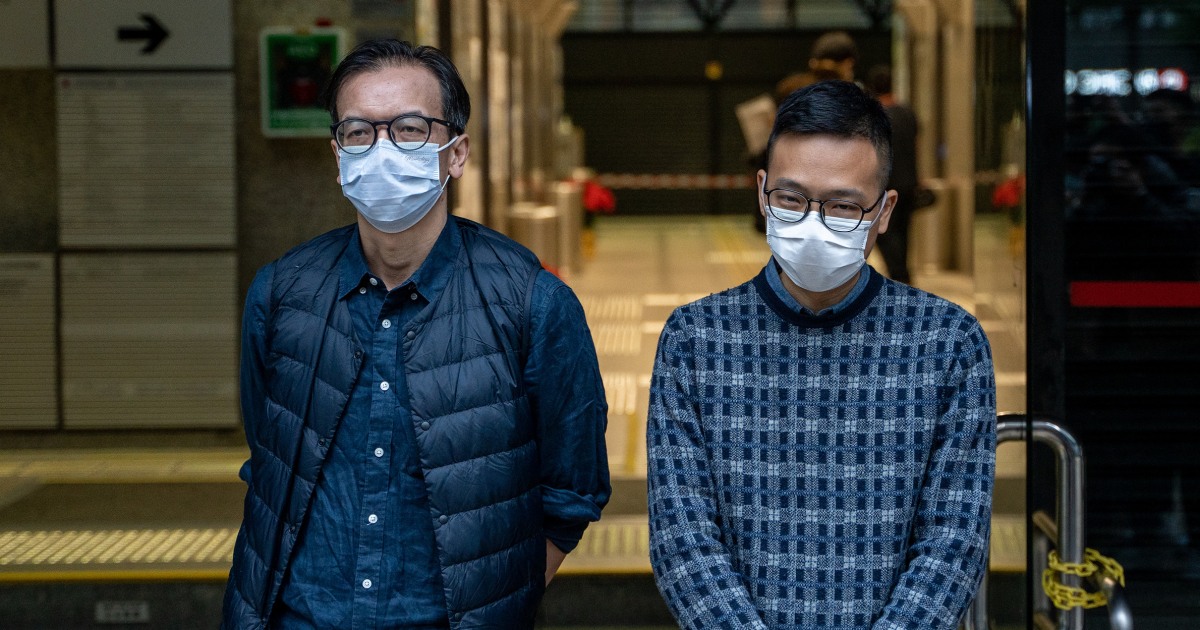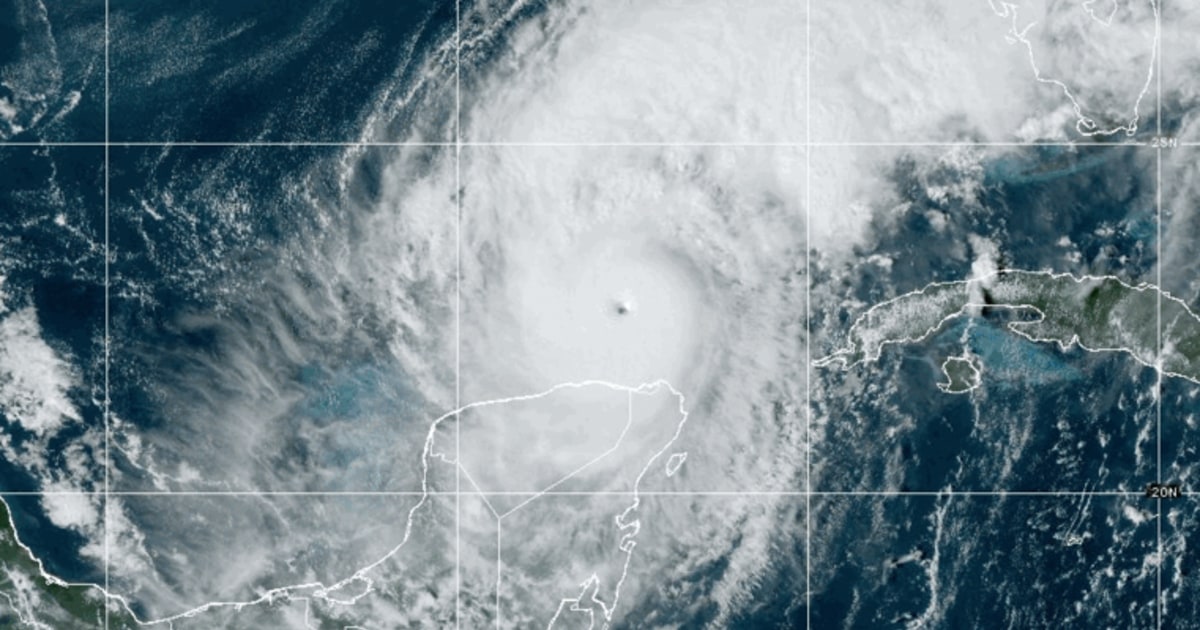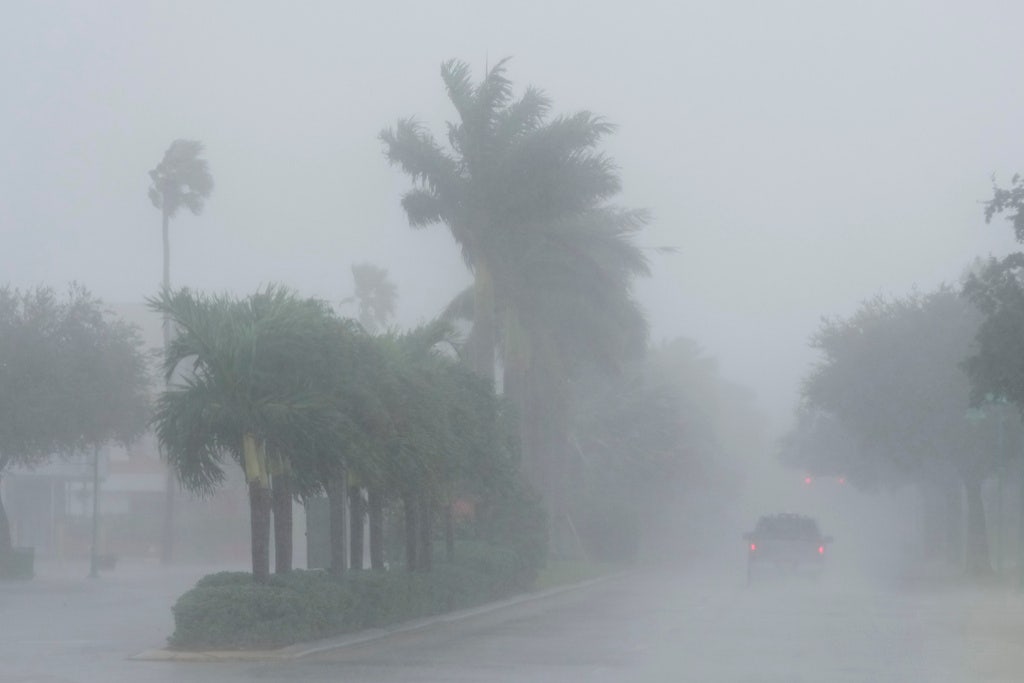HONG KONG — Two journalists who led a pro-democracy newspaper in Hong Kong were convicted of sedition Thursday, in a verdict that could have profound implications for press freedom in the Chinese territory.
Chung Pui-kuen, the former editor-in-chief of the now-defunct Stand News, and Patrick Lam, the newspaper’s former acting editor-in-chief, had pleaded not guilty to conspiracy to publish seditious materials under a law dating to the city’s time as a British colony.
Hong Kong authorities have resurrected the sedition law as part of a broad crackdown on dissent following mass antigovernment protests that roiled the city for months in 2019. But this was the first time it had been used against the media since 1997, when Hong Kong returned to Chinese rule on the condition that civil liberties such as press freedom be preserved for 50 years.
Prosecutors based their case on 17 articles Stand News published from July 2020 to Dec. 2021 that they described as seditious, which is defined as inciting hatred or contempt against the Chinese central government, the Hong Kong government or the judiciary.
A judge ruled Thursday that 11 of those 17 articles had “seditious intentions.”
“The Court found that the political climate at the time of the offense was extremely heated, and a large number of the public were discontented with or even against” the Hong Kong government and the Chinese central government, District Court Judge Kwok Wai-kin, who was handpicked by Hong Kong’s top leader to preside over the trial, said in his ruling.
The verdict, which comes almost two years after the trial began in Oct. 2022, had already been postponed three times. Chung and Lam, who both spent close to a year in pre-trial custody, will be sentenced next month and face up to two years in prison and fines of 5,000 Hong Kong dollars (about $640).
Read more NBC News coverage of Hong Kong
Stand News has been shut down and its online content deleted since Dec. 2021, when its office was raided by national security police and its assets were frozen. Chung, Lam and five other people were arrested the same day, though only Chung and Lam were later charged. The newspaper’s parent company, Best Pencil (Hong Kong) Ltd., was also charged but was not represented in the trial.
Western officials criticized the arrests and the closure at the time, including U.S. Secretary of State Antony Blinken, who said, “Journalism is not sedition.”
Stand News and other pro-democracy news outlets had been under pressure since June 2020, when Beijing imposed a sweeping national security law in response to the protests the year before. Though officials argue that the law was necessary to restore stability after the protests, which sometimes turned violent, critics say the law and local national security legislation enacted in March are being used to suppress dissent.
Many of Hong Kong’s most prominent pro-democracy figures have been arrested under the national security law, while others have resigned from politics or moved abroad. Dozens of civil society groups have also shut down, citing the uncertain environment.
The raid on Stand News followed the forced closure in June 2021 of Apple Daily, a popular pro-democracy newspaper whose founder, Jimmy Lai, 76, faces national security charges that could lead to his being imprisoned for life. Another pro-democracy news outlet, Citizen News, cited the closure of Stand News when it shut down shortly afterward.
In a statement on Thursday, the Hong Kong Journalists Association said the Stand News conviction “exemplifies the decline of the city’s press freedom.”
During the Stand News trial, the group said, prosecutors “microscopically scrutinized its editors and reporters’ intent.”
In an annual press freedom survey released by the group last week, local media workers gave Hong Kong a score of 25 out of 100, the lowest since the survey was first conducted in 2013. They were especially concerned about the impact of the new local national security legislation, known as Article 23, which has been criticized as being vaguely worded.
Hong Kong ranked 135th out of 180 countries and territories in Reporters Without Borders’ 2024 World Press Freedom Index, compared with 70th in 2018.
The Hong Kong government says freedom of the press and freedom of speech remain protected under the city’s mini-constitution and Bill of Rights but “are not absolute.”
Stand News, which was founded as a nonprofit in 2014, gained a large audience in 2019 for its livestreamed coverage of the protests. Though government officials criticized the paper’s coverage, Hong Kong residents rated it among the city’s most credible news outlets in 2019, according to a survey by researchers at the Chinese University of Hong Kong.
The 17 articles at issue in the Stand News trial included opinion pieces criticizing the national security law, interviews with former pro-democracy lawmakers now living in self-exile with bounties on their heads and profiles of three pro-democracy candidates who are waiting to be sentenced in a national security case.
Lawyers for Chung and Lam argued that they were legitimate journalists reporting on issues that other Hong Kong news media were also covering.
Since the national security law was imposed in 2020, journalists in Hong Kong have struggled to discern which topics are safe to report on, said Aleksandra Bielakowska, a Taiwan-based advocacy officer at Reporters Without Borders.
“It was very difficult for them to say what can trigger the authorities, national security police to prosecute them, or to arrest them, or basically even to threaten them with any other means,” she told NBC News.
With Chung and Lam’s conviction, Bielakowska said, the 17 articles on which the case was based become a warning for other journalists as to which people and topics might put them at risk.
“This trial is basically setting up the new ground rules,” she said. “It’s actually showing where the red lines might lay in the future.”
Penalties for sedition were increased in the local national security legislation that Hong Kong’s opposition-free legislature passed in March, which replaced the colonial-era sedition law. Under the new law, the maximum penalty for sedition is now 10 years in prison rather than two.
Read the full article here

















